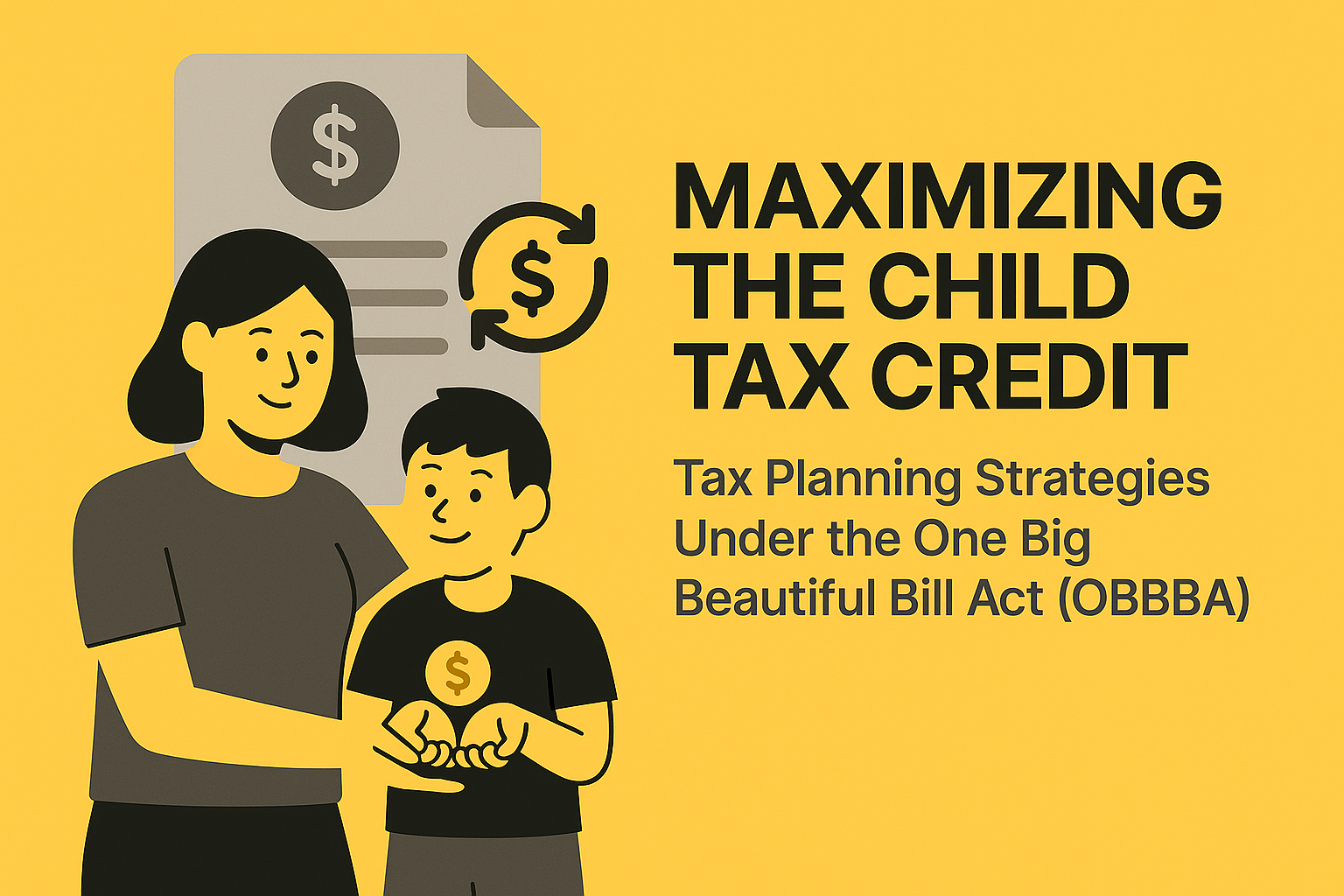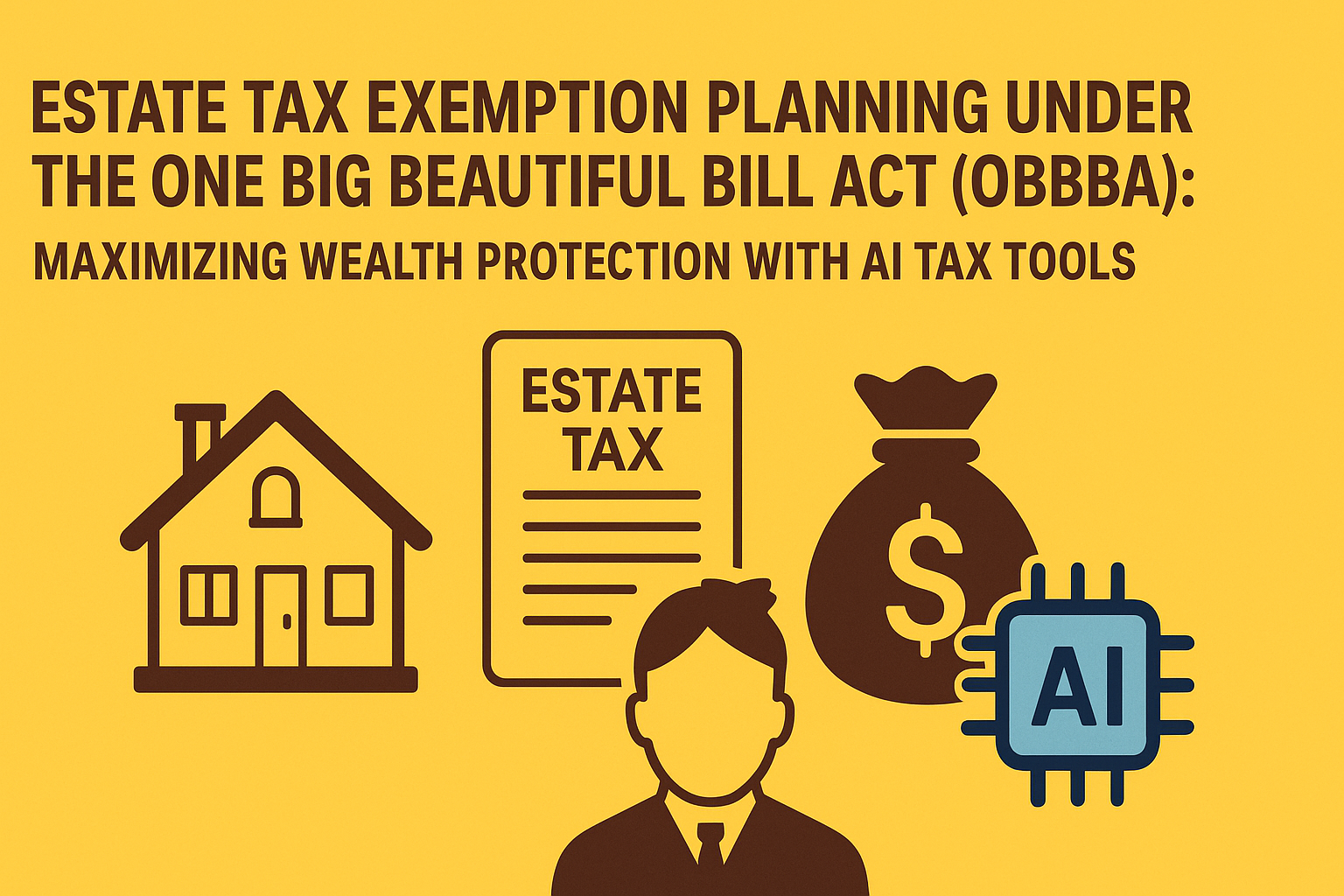HIVE TAX AI
Lotus Li

Lotus Li is a CPA who has transformed 20 years of professional experience into building products with a mission to simplifying everyone’s tax journey. She is passionate about bringing cutting-edge AI into the world of tax and finance and is deeply immersed in designing, building, and launching innovative AI-powered tax solutions.
What is the new amount and eligibility criteria for the Child Tax Credit under the One Big Beautiful Bill?
The One Big Beautiful Bill introduces significant enhancements to the Child Tax Credit that build upon the existing framework while providing increased benefits and permanent provisions.
Has the standard deduction changed, and are personal exemptions still eliminated under the One Big Beautiful Bill?
The One Big Beautiful Bill introduces significant and permanent changes to the standard deduction structure that build upon the temporary increases established by the Tax Cuts and Jobs Act
What are the new individual income tax brackets under the One Big Beautiful Bill?
The One Big Beautiful Bill represents a comprehensive tax reform proposal that fundamentally restructures the individual income tax system. Based on the available documentation, this legislation introduces significant changes to tax brackets, rates, and various deductions that would affect millions of American taxpayers.
Updating a High-Earner’s Multi-Year Tax Plan Under OBBBA with Hive AI Tax Planning Assistant
Jonathan and Lisa were proactive—under their CPA’s guidance, they previously implemented a comprehensive, multi-year tax plan specifically designed to address the sunset of the Tax Cuts and Jobs Act (TCJA)
Unlocking SALT Planning Opportunities Under the One Big Beautiful Bill Act (OBBBA)
The One Big Beautiful Bill Act (OBBBA) reshapes the federal tax landscape—including key reforms to the State and Local Tax (SALT) deduction cap.
Maximizing the Child Tax Credit: Tax Planning Strategies Under the One Big Beautiful Bill Act (OBBBA)
With the passage of the One Big Beautiful Bill Act (OBBBA), significant changes have been made to the Child Tax Credit, providing new planning opportunities for tax and financial professionals.
Are there changes to the pass-through entity tax workaround for SALT under the One Big Beautiful Bill?
The One Big Beautiful Bill does not appear to contain specific provisions that directly modify the existing pass-through entity tax workaround for State and Local Tax (SALT) deductions.
How long will the increased SALT cap remain in effect before reverting under the One Big Beautiful Bill?
The increased State and Local Tax (SALT) deduction cap under the One Big Beautiful Bill represents a temporary enhancement to the current tax limitation structure.
What is the new SALT cap, and how does it phase out for higher-income taxpayers under the One Big Beautiful Bill?
The One Big Beautiful Bill introduces significant changes to the State and Local Tax (SALT) deduction that represent a substantial departure from the current $10,000 limitation established by the Tax Cuts and Jobs Act (TCJA).
Estate Tax Exemption Planning Under the One Big Beautiful Bill Act (OBBBA): Maximizing Wealth Protection with AI Tax Tools
The One Big Beautiful Bill Act (OBBBA) brings sweeping changes to estate tax exemption planning in 2025 and beyond. This update affects high-net-worth families, business owners, and advisors.




